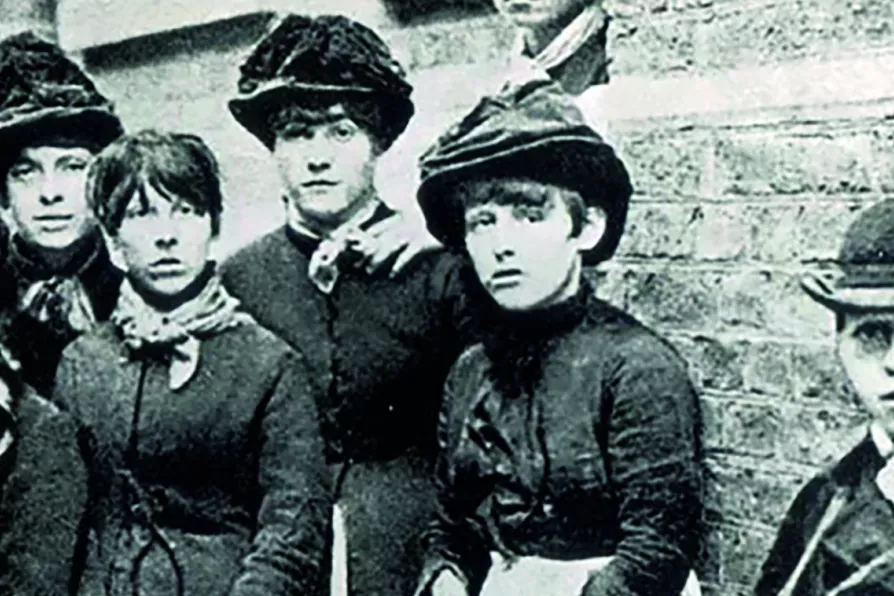Hundreds protested against the US-Israel attacks on Iran in Parliament Square on Saturday, fearing a wider conflagration and horrified by the targeting of young schoolchildren, writes LINDA PENTZ GUNTER
The Morning Star invites readers to join Jeremy Corbyn and others to celebrate a working-class female victory that echoes through the ages


THIS summer marks 137 years since Bow women and girls lit a flame that has burned for working people everywhere. You may have heard of the Bryant and May matchwomen, but the true importance of their 1888 fight against appalling, dangerous conditions in the Fairfield Road match factory has only become known comparatively recently, through the research of matchwomen’s historian and Morning Star contributor Louise Raw.
At the time, poor East Enders were portrayed as criminal and barely human. Matchwomen also came from Irish and Jewish backgrounds, at a time of prejudice against both groups. No-one expected these downtrodden, apparently powerless women to take on one of the country’s most powerful firms — and win.
Bryant and May had become vastly wealthy in one generation. The workers who produced these vast profits, however, weren’t getting their share.
Matchwomen lived in tenements, often just in one or two rooms with their whole family, with no running water or inside toilets. “Black beetles” — cockroaches — were so prevalent that people slept outside in summer to avoid their bites.
Raw, author of Striking a Light on the matchwomen and organiser of an annual Matchwomen’s Festival in Bow, explains: “Although Bryant and May were making a fortune, they’d forced wages down so far, they were lower in 1888 than 1878. The women were actually malnourished.
“Worst of all was dreaded industrial disease ‘phossy jaw’ — necrosis caused by deadly white phosphorus, used on match heads because the firm wouldn’t pay extra for a safe alternative. The disease caused the jawbone to decay, causing bits of bone ‘the size of peas’ to break off and force their way through suppurating abscess.
“By the summer of 1888, the women had had enough. When one girl was sacked unfairly, her workmates laid down their tools, picked up their hats and coats, and streamed out of the gates. Soon, 1,400 women and girls were on strike.”
The women processed the streets of Bow, singing about their fight to publicise it, and marched to Parliament, meeting with MPs. Eventually, the pressure on the firm was such that they were forced, very unwillingly, to give in to the women’s demands, which included the right to form the largest union of women and girls in the country.
Hundreds of thousands of other workers were inspired by this incredible victory and also used strikes to win the right to form unions.
The strike was finally acknowledged with a blue plaque in 2022, and on June 28, the Matchwomen’s Festival will run from 2pm to 8.30pm at Bow Arts Trust, close to the old factory where it all began.
Tickets for the Matchwomen’s Festival 2025 are available from https://tinyurl.com/MatchFest25. Follow Louise Raw on X @LouiseRawAuthor.

On January 2 2014, PJ Harvey used her turn as guest editor of the Today programme to expose the realities of war, arms dealing and media complicity. The fury that followed showed how rare – and how threatening – such honesty is within Britain’s most Establishment broadcaster, says IAN SINCLAIR

BEN CHACKO reports on the struggles against sexism, racism and the brutish British state that featured at Matchwomen’s Festival this year













